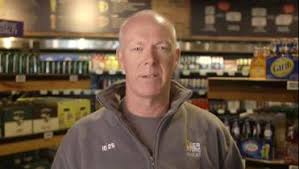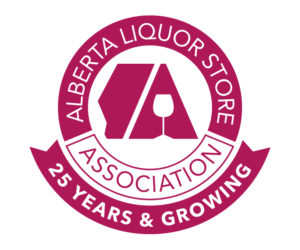
You may have seen or heard about the recent The Beer Store (TBS) campaign arguing against selling beer in grocery and convenience stores. A website (here) and a series of videos featuring world curling champion Glen Howard claim to present a series of facts about both TBS and what is happening in Alberta, Quebec and New York.
In response the Alberta Liquor Store Association (ALSA) has launched its own campaign (found here) refuting the TBS claims, calling them “fake facts”. (As an aside, why is Alberta always so touchy when someone points out possible negatives about us??). They even recruited their own curling star, Brenden Bottcher, to counter Howard. (Curling and beer. Can’t see how they made that connection…)
Both campaigns are fueled by self-interest. TBS, majority-owned by the big three breweries, is trying to hold off attempts by the Ford government to break its monopoly and allow beer and wine sales in corner stores (which he is doing by trying to break a recently signed contract with TBS). ALSA doesn’t face any kind of imminent threat on its members, but it has a long history of being rather touchy about criticisms of private retail.
Given who the messengers are, we should look at both campaigns with a skeptical eye. It is very clear from viewing the videos that both campaigns are telling half truths. They are also talking past one another – offering up non sequitor responses to criticisms. Allow me to offer an overview of some of the major issues being discussed.
1. Beer Prices are Higher in Alberta
TBS claims beer prices are higher in Alberta, up to 32% higher. One video shows Howard in Calgary buying some common Ontario and big boy beer and smugly pointing out how much more expensive Alberta is. TBS argues the price difference is due to privatized retail, Alberta’s “patchwork” distribution systems, and TBS’s economies of scale.
Interestingly, the ASLA does not refute the higher beer prices claim. Instead they retort that “the price has nothing to do with the distribution model, the price is set by Molson themselves which set a higher price for their beer in Alberta” (this is a quote from ASLA President Ivonne Martinez referring to TBS’s price claim about Coors).
ASLA can’t counter the price claim because it is true. Multiple studies over the years have shown that Alberta consistently has higher beer prices than Ontario, B.C. and most other provinces. However, that is where the accuracy ends – for both sides.
First, TBS is wrong that Alberta has a “patchwork” of distribution systems. Alberta has the same basic structure for its distribution as Ontario, with Liquor Connect, Brewers Distributors (the big boys system) and self-distribution by local producers.
Yet, ASLA is wrong that the reason for the price difference is choices by breweries. While company pricing decisions are always a factor in a market system, the decision to privatize retail created inefficiencies in the system, including loss of economies of scale, need for greater numbers of middle people such as agents and salespeople, and the need for profit margins for retailers.
The factors that lead into pricing are complex and not easily explained in a thirty second video. Both parties are over-simplifying to bolster their case.
2. Privatization Will Lead to Job Losses
TBS implies that 7,000 jobs will be at risk if they lose their monopoly. ASLA counters that 12,000 new jobs were created in Alberta due to private retail. Neither is accurate. There are economic arguments for why both numbers are inaccurate (job gains/losses will never be straightline). It is true there are 12,000 jobs in liquor retail in Alberta but we need to calculate how many there would be under a different system (retail would still be needed). And TBS’s threat to 7,000 jobs? That would require the entire TBS structure to be shut down, which is not what is being proposed (only to bust their monopoly).
There is reason to argue that there will not be much employment gain by beer in corner stores, because those stores already have staff who will just be asked to sell additional items. But that is a fairly minor point.
For me the bigger issue – one where the two are talking past each other – is what KIND of jobs are created/lost? TBS, for its many faults, offers stable, well-paying unionized jobs. Private liquor stores utilize a lower wage, more precarious labour supply strategy. Which is better depends on your perspective, but it is a legitimate aspect of the debate.
Again, both are over-simplifying and over-stating to stoke a false debate.

3. Alberta has Better Selection
TBS conveniently ignores the question of how many different beer are available in their stores, focusing instead on price. ALSA makes a bigger deal of this in their videos, reporting that Alberta has 26,000 listings, including “over 7,000 beer types” while Ontario has “under 2,000”.
Those numbers need some unpacking. First, the 26,000 listings is irrelevant as that includes wine and spirits (The AGLC states they have 24,000 listings, but whatever). Second, Alberta does not have over 7,000 “beer types”. As of yesterday Connect Logistics had 6,263 SKUs (stockkeeping units) listed. That list will not include beer distributed by the big three’s system nor self-distributed Alberta craft beer. So you likely hit 7,000 SKUs. Except a SKU is not a beer type, it is a stock tool. Most beer have multiple SKUs, especially the big boys (six pack, twelve pack, 18-pack, 36-pack, kegs, singles, etc.). I am not sure what the exact number of unique beer brands are available (AGLC would know but I found nothing public in a quick search), but we are likely guessing in the 3,000-ish range.
Compare to Ontario, where TBS has about 800 unique brands and the LCBO has about 1,200 SKUs. So let’s say about 1,600 or so. The difference isn’t quite so overwhelming as ALSA wants us to believe.
Plus, (as I have mentioned before) good luck finding those 3,000 beer listed in Alberta in most strip mall-style liquor stores. It is very much true Alberta has the best selection for consumers in the country. But let’s be careful with the overflowing cornucopia talk.
The notion of “choice” is more complex than the parties admit. Having a lot of listed beer isn’t necessarily choice, but neither is having sparsely scattered stores with limited hours (which is one of TBS’s problems). They over-simplify (I think I am becoming a broken record.)
4. Social Responsibility
The two organizations are also sparring over social responsibility – the ability of each to prevent sales to minors and over-consumption. I don’t have much to say about this as I feel this issue is often trotted out for political and PR purposes than genuine concern. But they raise it, so I will mention it.
Both tout their processes around social responsibility. And on the surface they are both right. I have no doubt their policies are sound. I also have no doubt that in practice both have break downs. In particular I imagine the smaller Alberta stores may not have the same rigour as the bigger chains.
This issue feels like it is simply about making themselves sound righteous.
What to Make of It?
I am starting to feel I have written a “dog bites man” kind of post. OF COURSE self-interested private organizations are going to torque the argument one direction or another. They are in the persuading business, not the education business.
Sure. But that is why I write what I write. Someone around here has to be committed to facts and disseminating those facts in as honest a fashion as possible.
Plus it irks me (and motivates me to put fingers to keyboard today) when self-interested parties try to tell us they are concerned about the public interest. TBS is a majority conglomerate of some of the largest multi-national brewing corporations in the world trying to protect its monopoly. ALSA is an industry association representing hundreds of for-profit liquor store owners trying to protect their profit margins. Neither is particularly interested in you beyond your wallet.
Video watcher beware.

June 23, 2019 at 10:03 AM
Fake news, eh?
June 23, 2019 at 3:54 PM
One thing is true that in Alberta are in more locations in the average community that TBS is in Ontario. Also in cities some are open late (2AM) so their is much greater convenience than LCBO or TBS
June 24, 2019 at 10:31 AM
That is true. I argue the definition of convenience is complex and different for every person. For example, I am not someone who needs a liquor store at 2AM. A shift worker may feel quite differently. Also, I believe 10 stores in a community, all providing the same macro beer isn’t really convenience. To find the beer I want I need to go further afield. I don’t mind, it is just that different consumers have different priorities.
July 17, 2019 at 1:31 PM
However finding the “off season” styles in Ontario is nearly impossible, for example if I am in mood for a stout in August I could not find it at LCBO unless I got a Guinness, in Alberta I could go into most Sobeys and find an array of choices a little easier then out east that is all I have to say